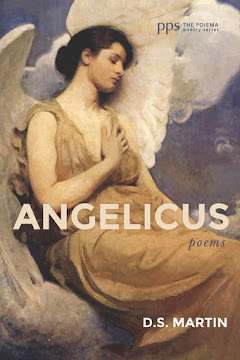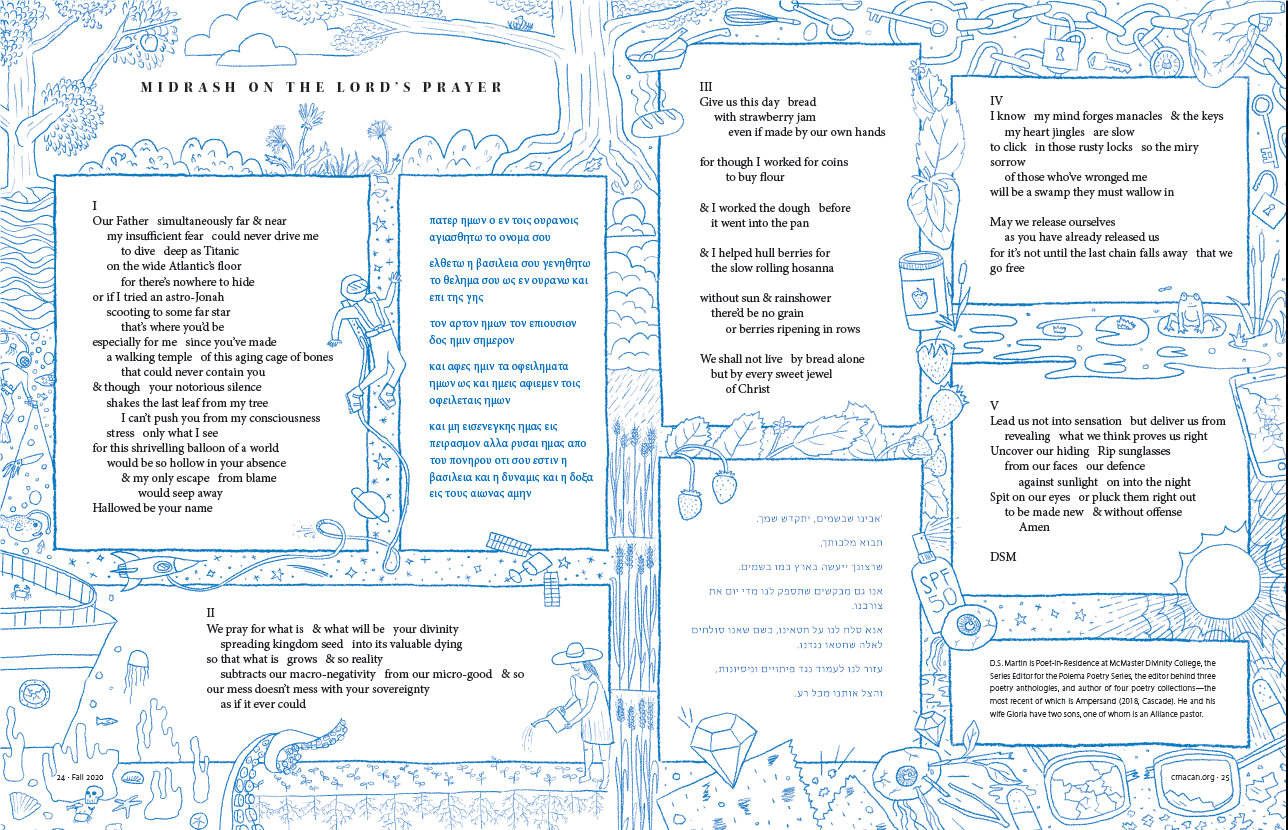Sophia de Mello Breyner Andresen (1919—2004) is considered Portugal's finest, 20th century, female poet. Besides writing her own poetry, she is known for her children's books, and her translations of Shakespeare and Dante into Portuguese. She was raised a Catholic, and remained devout all her life. In 1999 she became the first woman to receive Portugal's highest poetry honour: The Prémio Camões.
She has said, “Poetry is my understanding with the universe, my way of relating to things, my participation in reality, my encounter with voices and images. That is why the poem speaks not of an ideal life but of a concrete one”.
The following poems were translated by Richard Zenith.
Transparency
Lord free us from the dangerous game of transparency
There are no corals or shells on the sea floor of our soul
Just a smothered dream
And we don’t really know what dreams are
Silent conductors faint songs
Which one day suddenly appear
On the broad flat patio of disasters
The Navigators
Multiplicity makes us drunk
Astonishment leads us on
With daring and desire and calculated skill
We’ve broken the limits —
But the one God
Keeps us from straying
Which is why at each port we cover with gold
The sombre insides of our churches
This is the first Kingdom Poets post about Sophia de Mello Breyner Andresen: second post.
Entry written by D.S. Martin. He is the award-winning author of the poetry collections Poiema (Wipf & Stock) and So The Moon Would Not Be Swallowed (Rubicon Press). They are both available at: www.dsmartin.ca
Monday, October 29, 2012
Monday, October 22, 2012
Richard Crashaw
Richard Crashaw (c.1613—1649) was greatly inspired by the posthumous publication of The Temple (1633) by George Herbert. He is, however, often not included in lists of the metaphysical poets, because of the influences of Italian and Spanish mystics and of continental poets on his verse.
Although Crashaw's father, the Puritan divine William Crashaw, was opposed to the Catholic church, his personal library contained many volumes by Catholic writers. Some feel this was for the purpose of exposing their errors; he translated, however, several Jesuit hymns from the Latin, so he seems to have appreciated their devotion. Well after his father's death, when he had travelled to Paris to avoid the conflict of the Civil War, Richard Crashaw officially embraced Catholicism.
Crashaw's reputation has not remained as strong as that of some of his contemporaries. Maureen Sabine, of the University of Hong Kong, says, “Present-day readers need to appreciate once more that Crashaw's poetry was first admired as an extension of his prayer life and as the testimony of one who dwelt in the presence of God.”
A Song
Lord, when the sense of thy sweet grace
Sends up my soul to seek thy face.
Thy blessed eyes breed such desire,
I die in love’s delicious Fire.
O love, I am thy Sacrifice.
Be still triumphant, blessed eyes.
Still shine on me, fair suns! that I
Still may behold, though still I die.
Though still I die, I live again;
Still longing so to be still slain,
So gainful is such loss of breath.
I die even in desire of death.
Still live in me this loving strife
Of living Death and dying Life.
For while thou sweetly slayest me
Dead to myself, I live in Thee.
This is the first Kingdom Poets post about Richard Crashaw: second post.
Entry written by D.S. Martin. He is the award-winning author of the poetry collections Poiema (Wipf & Stock) and So The Moon Would Not Be Swallowed (Rubicon Press). They are both available at: www.dsmartin.ca
Although Crashaw's father, the Puritan divine William Crashaw, was opposed to the Catholic church, his personal library contained many volumes by Catholic writers. Some feel this was for the purpose of exposing their errors; he translated, however, several Jesuit hymns from the Latin, so he seems to have appreciated their devotion. Well after his father's death, when he had travelled to Paris to avoid the conflict of the Civil War, Richard Crashaw officially embraced Catholicism.
Crashaw's reputation has not remained as strong as that of some of his contemporaries. Maureen Sabine, of the University of Hong Kong, says, “Present-day readers need to appreciate once more that Crashaw's poetry was first admired as an extension of his prayer life and as the testimony of one who dwelt in the presence of God.”
A Song
Lord, when the sense of thy sweet grace
Sends up my soul to seek thy face.
Thy blessed eyes breed such desire,
I die in love’s delicious Fire.
O love, I am thy Sacrifice.
Be still triumphant, blessed eyes.
Still shine on me, fair suns! that I
Still may behold, though still I die.
Though still I die, I live again;
Still longing so to be still slain,
So gainful is such loss of breath.
I die even in desire of death.
Still live in me this loving strife
Of living Death and dying Life.
For while thou sweetly slayest me
Dead to myself, I live in Thee.
This is the first Kingdom Poets post about Richard Crashaw: second post.
Entry written by D.S. Martin. He is the award-winning author of the poetry collections Poiema (Wipf & Stock) and So The Moon Would Not Be Swallowed (Rubicon Press). They are both available at: www.dsmartin.ca
Monday, October 15, 2012
Ivan Head
Ivan Head is an Anglican priest and poet, who was born near Perth, Australia. His poems frequently appear in the influential magazine, Quadrant, which is edited by Les Murray. Ivan Head left Australia in the early ‘80s to earn a PhD in New Testament Language and Literature, from Scotland’s Glasgow University. Since 1995 he has served as the Warden of St. Paul’s College at the University of Sydney.
His first collection, The Projectionist, was thirty years in the making, and appeared from Palliser Publishing in 2004. The following is the final poem in the collection. The second poem is one of Ivan Head’s newest poems, and has not been previously published.
The Poppy
Within the pages
of this book
made in 1638
and close to the inner spine
I found by chance
in Job's lament
a pressed flower;
a browned Poppy,
thinner than a wafer
but recognizable.
It possibly
pre-dates Cromwell.
Whose hand placed it there?
Tomorrow I shall turn
to the Song of Songs
and look for time's pressed Rose.
Dash 8 from Armidale:
Not Angle Grinders but Angel Grinders
At nineteen thousand feet
The propeller is 2 metres of
Continuous diaphanous blade,
A thin curtain of spin slicing the air,
There’s a blur at the tip where
Contrary paint hints at a solid
fugal edge, the fleeing, flight edge.
It would not warn a bird.
Held by the engineered centre
By its core and cone.
This centre can hold,
This gyre not fly off.
The propeller lives by refinement
And human purposes.
They are not replaced by the jet.
While it looks like nothing’s there
“Beware, Beware.” The cutting air.
Posted with permission of the poet.
Entry written by D.S. Martin. He is the award-winning author of the poetry collections Poiema (Wipf & Stock) and So The Moon Would Not Be Swallowed (Rubicon Press). They are both available at: www.dsmartin.ca
His first collection, The Projectionist, was thirty years in the making, and appeared from Palliser Publishing in 2004. The following is the final poem in the collection. The second poem is one of Ivan Head’s newest poems, and has not been previously published.
The Poppy
Within the pages
of this book
made in 1638
and close to the inner spine
I found by chance
in Job's lament
a pressed flower;
a browned Poppy,
thinner than a wafer
but recognizable.
It possibly
pre-dates Cromwell.
Whose hand placed it there?
Tomorrow I shall turn
to the Song of Songs
and look for time's pressed Rose.
Dash 8 from Armidale:
Not Angle Grinders but Angel Grinders
At nineteen thousand feet
The propeller is 2 metres of
Continuous diaphanous blade,
A thin curtain of spin slicing the air,
There’s a blur at the tip where
Contrary paint hints at a solid
fugal edge, the fleeing, flight edge.
It would not warn a bird.
Held by the engineered centre
By its core and cone.
This centre can hold,
This gyre not fly off.
The propeller lives by refinement
And human purposes.
They are not replaced by the jet.
While it looks like nothing’s there
“Beware, Beware.” The cutting air.
Posted with permission of the poet.
Entry written by D.S. Martin. He is the award-winning author of the poetry collections Poiema (Wipf & Stock) and So The Moon Would Not Be Swallowed (Rubicon Press). They are both available at: www.dsmartin.ca
Monday, October 8, 2012
Angelus Silesius
Angelus Silesius (1624-1677) is a German poet and mystic. He was raised Lutheran, but converted to Catholicism where his mysticism would be more acceptable. Today, he is best know for his poetry. His two best known poetic works, The Soul's Holy Desires and The Cherubinic Pilgrim, were both published in 1657 when he obtained permission from Catholic authorities.
The Cherubinic Pilgrim is a series of 1600 epigrams, written as alexandrine couplets. The following are my own updated versions of some Angelus Silesius poems from this series, based on the English translations of J.E. Crawford Flitch.
More Known Less Understood
The more you know God, the more you will confess
That what He truly is, you know now less and less.
Through You God Loses Nothing
Choose, Man, which of the two you want,
Your self-destruction or your peace.
Through you God suffers no loss,
Nor does He find increase.
What Is Spoken Of God Is More False Than True
Since you do measure God by creature qualities,
There’s more of lie than truth in your theologies.
God Is Known In Creation
The hidden God becomes known
And familiar to mankind
In the created world of things
Which He has fashioned and designed.
God Didn't Die For The First Time On The Cross
The cross wasn't the first time He let Himself be slain,
For, see, he lies dead there at the feet of Cain.
Entry written by D.S. Martin. He is the award-winning author of the poetry collections Poiema (Wipf & Stock) and So The Moon Would Not Be Swallowed (Rubicon Press). They are both available at: www.dsmartin.ca
The Cherubinic Pilgrim is a series of 1600 epigrams, written as alexandrine couplets. The following are my own updated versions of some Angelus Silesius poems from this series, based on the English translations of J.E. Crawford Flitch.
More Known Less Understood
The more you know God, the more you will confess
That what He truly is, you know now less and less.
Through You God Loses Nothing
Choose, Man, which of the two you want,
Your self-destruction or your peace.
Through you God suffers no loss,
Nor does He find increase.
What Is Spoken Of God Is More False Than True
Since you do measure God by creature qualities,
There’s more of lie than truth in your theologies.
God Is Known In Creation
The hidden God becomes known
And familiar to mankind
In the created world of things
Which He has fashioned and designed.
God Didn't Die For The First Time On The Cross
The cross wasn't the first time He let Himself be slain,
For, see, he lies dead there at the feet of Cain.
Entry written by D.S. Martin. He is the award-winning author of the poetry collections Poiema (Wipf & Stock) and So The Moon Would Not Be Swallowed (Rubicon Press). They are both available at: www.dsmartin.ca
Monday, October 1, 2012
Patrick Kavanagh
Patrick Kavanagh (1904—1967) is one of the most popular poets among the Irish people. He left school to follow his father in his profession as a cobbler, but found he had no aptitude for it. He worked the family farm, until 1931 when he moved to Dublin to seek success as a poet and journalist. He says, “I dabbled in verse and it became my life.” Seamus Heaney said in a review of Kavanagh’s Collected Poems for The Guardian that “Kavanagh is a truly representative modern figure in that his subversiveness was turned upon himself: dissatisfaction, both spiritual and artistic, is what inspired his growth.”
In his introduction to No Earthly Estate, a collection of Kavanagh's poems of the Spirit, parish priest Tom Stack points out that more than half of all of his poetry includes references to Christian faith. He attributes to Patrick Kavanagh a “sacramental perspective” which “'sees' the divine in the human, the infinite in the finite, the eternal in the historical. Properly understood this will never be mistaken for some kind of idolatry, pantheism or magic. True sacramentality affords the Christian believer something of a glimpse of God.”
Primrose
Upon a bank I sat, a child made seer
Of one small primrose flowering in my mind.
Better than wealth it is, I said, to find
One small page of Truth's manuscript made clear.
I looked at Christ transfigured without fear—
The light was very beautiful and kind,
And where the Holy Ghost in flame had signed
I read it through the lenses of a tear.
And then my sight grew dim, I could not see
The primrose that had lighted me to Heaven,
And there was but the shadow of a tree
Ghostly among the stars. The years that pass
Like tired soldiers nevermore have given
Moments to see wonders in the grass.
Canal Bank Walk
Leafy-with-love banks and the green waters of the canal
Pouring redemption for me, that I do
The will of God, wallow in the habitual, the banal,
Grow with nature again as before I grew.
The bright stick trapped, the breeze adding a third
Party to the couple kissing on an old seat,
And a bird gathering materials for the nest for the Word
Eloquently new and abandoned to its delirious beat.
O unworn world enrapture me, encapture me in a web
Of fabulous grass and eternal voices by a beech,
Feed the gaping need of my senses, give me ad lib
To pray unselfconsciously with overflowing speech
For this soul needs to be honoured with a new dress woven
From green and blue things and arguments that cannot be proven.
This is the first Kingdom Poets post about Patrick Kavanagh: second post
Entry written by D.S. Martin. He is the award-winning author of the poetry collections Poiema (Wipf & Stock) and So The Moon Would Not Be Swallowed (Rubicon Press). They are both available at: www.dsmartin.ca
In his introduction to No Earthly Estate, a collection of Kavanagh's poems of the Spirit, parish priest Tom Stack points out that more than half of all of his poetry includes references to Christian faith. He attributes to Patrick Kavanagh a “sacramental perspective” which “'sees' the divine in the human, the infinite in the finite, the eternal in the historical. Properly understood this will never be mistaken for some kind of idolatry, pantheism or magic. True sacramentality affords the Christian believer something of a glimpse of God.”
Primrose
Upon a bank I sat, a child made seer
Of one small primrose flowering in my mind.
Better than wealth it is, I said, to find
One small page of Truth's manuscript made clear.
I looked at Christ transfigured without fear—
The light was very beautiful and kind,
And where the Holy Ghost in flame had signed
I read it through the lenses of a tear.
And then my sight grew dim, I could not see
The primrose that had lighted me to Heaven,
And there was but the shadow of a tree
Ghostly among the stars. The years that pass
Like tired soldiers nevermore have given
Moments to see wonders in the grass.
Canal Bank Walk
Leafy-with-love banks and the green waters of the canal
Pouring redemption for me, that I do
The will of God, wallow in the habitual, the banal,
Grow with nature again as before I grew.
The bright stick trapped, the breeze adding a third
Party to the couple kissing on an old seat,
And a bird gathering materials for the nest for the Word
Eloquently new and abandoned to its delirious beat.
O unworn world enrapture me, encapture me in a web
Of fabulous grass and eternal voices by a beech,
Feed the gaping need of my senses, give me ad lib
To pray unselfconsciously with overflowing speech
For this soul needs to be honoured with a new dress woven
From green and blue things and arguments that cannot be proven.
This is the first Kingdom Poets post about Patrick Kavanagh: second post
Entry written by D.S. Martin. He is the award-winning author of the poetry collections Poiema (Wipf & Stock) and So The Moon Would Not Be Swallowed (Rubicon Press). They are both available at: www.dsmartin.ca
Subscribe to:
Posts (Atom)























